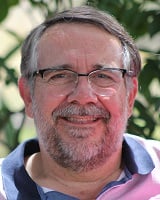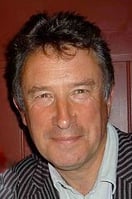 Assoc Prof Bruce Chater (Australia)
Assoc Prof Bruce Chater (Australia)
A/Prof Bruce Chater is from Queensland, Australia where he is Medical Superintendent with Right to Private Practice in the rural town of Theodore. Bruce was the Working Party's inaugural Secretary and took over as Chair in October 2019.
He is inaugural Chair of the (Queensland) Statewide Rural and Remote Clinical Network, Mayne Associate Professor and Head of the Discipline of Rural and Remote Medicine at University of Queensland, and on the Australian Independent Hospital Pricing Authority Board. He was the founding convenor of the Rural Doctors Associations of Queensland and Australia and the founding Chair of the Australian National Rural Health Alliance.
Bruce remains grounded in the needs of rural communities as performs these roles while providing comprehensive rural generalist hospital practice and general practice in Theodore. He has been awarded a Medal of the Order of Australia for his service to Rural Medicine and his rural community.
Past Chair: Dr John Wynn-Jones (Wales)

Dr
John Wynn-Jones has been a rural GP in Wales for over 30 years. He has
now retired from his full time practice but still continues to work part
time. He trained at Guy’s Hospital London 1969-75 but after finishing
his GP training returned to his native Wales to work in a rural practice
in Montgomery on the Welsh borders.
He soon became aware that the rural GPs lacked any significant support
or on-going continuing education. He and a few colleagues formed a local
medical society, which provided educational and support for general
practitioners and their staff. He went on to found the UK Institute of
Rural Health and the Welsh Rural Postgraduate Unit. In 1997 he was
instrumental in creating the European Rural and Isolated Practitioner’s
Association (EURIPA) and remained its president until 2012. Under his
presidency the network grew in stature and influence and represents
rural practitioners across the continent.
John was one of the founding members of the WONCA Working Party on Rural
Practice and took over as chair in Prague this year from Professor Ian
Couper. His personal areas of focus for the forthcoming triennium
include:
• Renewal of the membership of the Working Party, aiming to ensure that
there is gender equity and that younger doctors are represented
• Ensuring relevance to working rural practitioners, through
systematically reviewing previous policies and statements of the working
party, adopted at conferences over the years, so that they remain
relevant and are communicated effectively with rural family doctors.
• Linking more with the broader Wonca family, aiming to work together
and combine skills, resources and energies to address the mounting
challenges that rural practitioners face over the coming decades.
• Publish the electronic Guidebook on Rural Medical Education, which has been under development for a number of years.
He has held many posts and roles over the years including the position of Medical Advisor to the BBC’s
Archers,
the longest running radio soap in the world. He has spoken at
conferences around the world and published on rural issues. He is
currently the Senior Lecturer in Rural and Global Health at Keele
University.
He worked with his colleagues at the Institute of Rural Health to develop UK’s
Rural Proofing Tool
in 2007 ( 2nd version was released earlier this year). The rural
Proofing process is key to ensuring that rural policy meets the needs of
rural populations and used properly can have an impact in promoting
equity for rural inhabitants.
His passion for rural practice remains unabated and says that despite
the success we have much more to do to reduce rural inequalities and
improve health outcomes.
John describes himself as
“A catcher of dreams” who believes that we
all have the capacity to change the world. As Paulo Cohelo says in “The
Alchemist” we must listen to the language of the world, look where we
started from and take the opportunities when they arise.